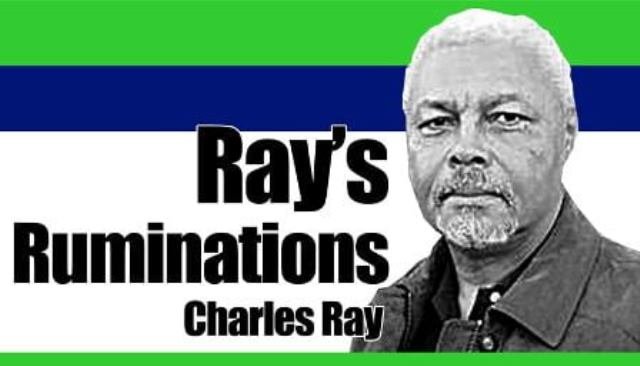
Earth. A spherical object moving around the sun at a speed of 67,000 mph and with that sun through our galaxy at 447,000 mph in a crowded universe where everything else is constantly moving. Approximately 75 percent of the surface of Earth is water, and of the 25 percent that’s left, only about 43 percent is inhabitable, and it is currently home to over 8 billion people whose numbers are growing at a rate of 140 people per minute.
At 93 million miles, give or take a mile or two, we on Earth are in what’s known in astronomy as the habitable zone, or Goldilocks zone, or the distance from a star that’s just about right to allow liquid water to exist on the planet’s surface. It’s neither too hot, nor too cold, and is just right to sustain life. If something should go wrong with our sun, which is already over 4 billion years old, all bets are off.
One would think that so-called intelligent, aware beings, homo sapiens, in such a situation, would be looking for ways to ensure our continuing survival. After all, at present we have nowhere else to go. You would be wrong if you thought that, though.
Humans, who have only existed on the planet for 315,000 years based on the oldest fossil remains that have been found, have, since their ancient ancestors climbed down from the trees and walked upright, made it harder and harder to survive on the planet. They’ve destroyed vegetation that protects the environment by absorbing carbon and emitting oxygen, caused millions of species of animals to become extinct, mined, plowed, and paved over vast areas of the small amount of habitable land that’s available.
Worse, in many ways, though, is that they’ve set about over the time they’ve been here to destroy each other through wars, wars to take land, wars to avenge grievances, and in come cases wars just because those they make war on are considered ‘different.’
The concept of difference is interesting, considering that modern humans, regardless of language, culture, race, or geographical location, are descended from homo erectus (the first hominids to walk upright), who originated in Africa and who migrated out of Africa to other areas of the planet where they mingled and mated with other hominids, developed different languages and cultures, and evolved to fit the new environment.
So, the differences that we often use to justify making war, are merely adaptations to the environment that people found themselves in, an environment that they often changed by their mere presence.
While war and conflict is never the real answer to problems, in the past, as humans were just beginning to understand the world around them, when everything unfamiliar and new was seen as a potential threat to their very existence, it’s perhaps somewhat understandable.
In our present age, when we’ve split atoms, spliced genes, and put a human on the moon, there’s no excuse for wars based on an ignorant hate of the ‘other,’ yet we still do it. The wars don’t always involve guns and bombs either. In some of our so-called developed countries, we spend an inordinate amount of time using law and politics to vanquish our ‘enemy,’ defining enemy as anyone who doesn’t agree with our ideology. It seems that the more we learn, the harder some people try to bury that knowledge under an avalanche of bigotry and hate.
We seem to live in the world where facts, those things that can be objectively proven, are ignored in favor of the subjective truth of those who think the way we do. In such a situation, we then look for ‘alternative facts,’ to counterbalance the facts presented by anyone who we consider to be the ‘other.’
To the individual, the Earth seems large, but on a cosmic scale, the earth is but a grand of sand, which makes us humans even less significance than a grain of sand. We are microscopic neurons on a tiny bubble being swept along in an intergalactic maelstrom, surviving by the slimmest of margins at the best of times.
It’s time we woke up and realized that when we refuse to make room for others, we imperil what little room we already have. | NWI




